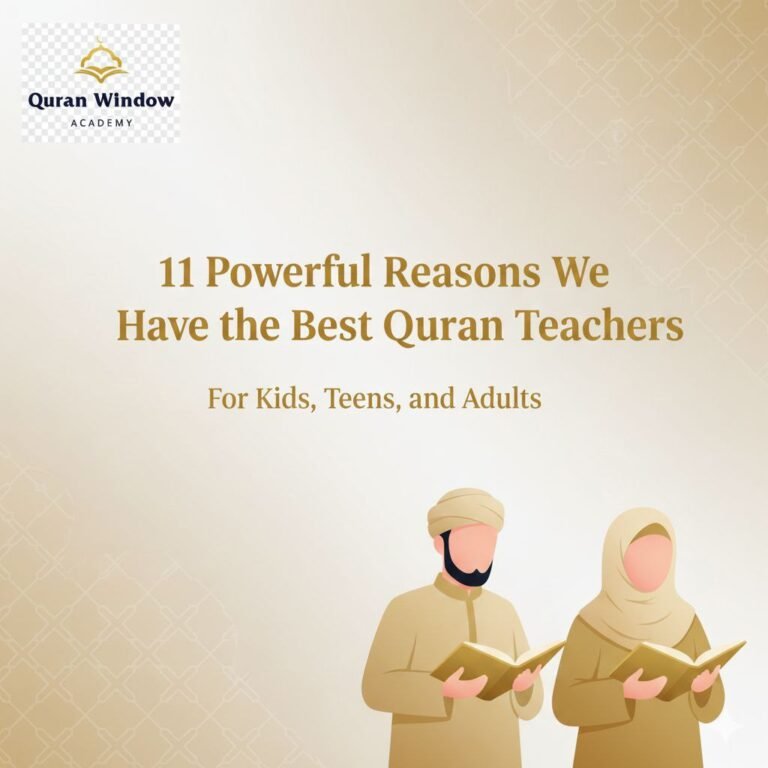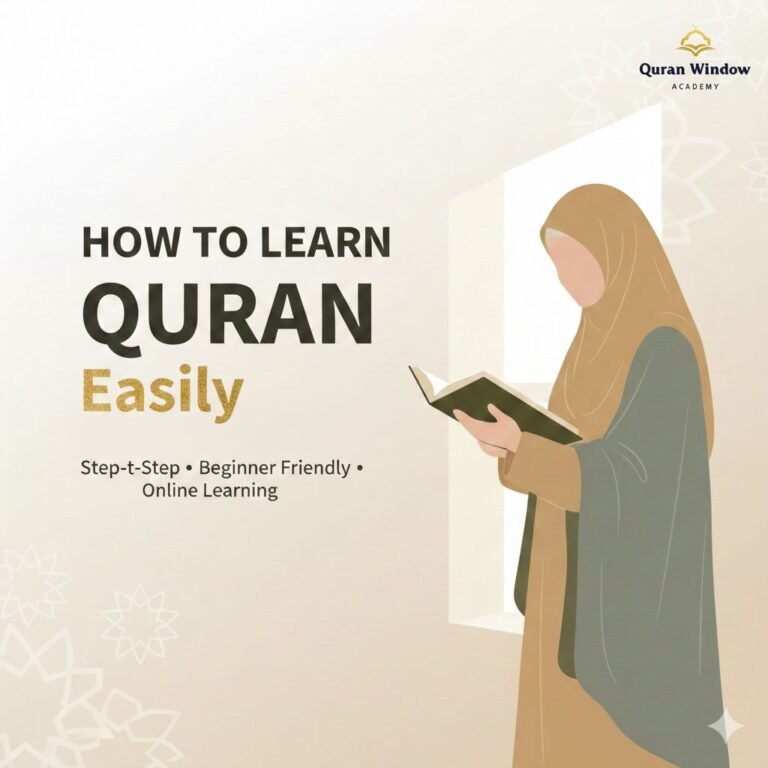How to Understand the Quran in English: A Step-by-Step Approach
How to Understand the Quran in English: A Step-by-Step Approach
Introductions
The Quran is more than just a sacred text; it is a divine guide for life. For non-Arabic speakers, understand the Quran in English bridges the gap between recitation and true comprehension. When one delves into its meanings, they unlock spiritual wisdom, gain clarity on moral conduct, and strengthen their faith. Without understanding, the words remain distant, but with comprehension, they become a source of enlightenment and personal transformation.
The Significance of Understand the Quran in English
For those who do not speak Arabic, engaging with an English translation of the Quran provides direct access to its teachings. While reciting in Arabic is valuable, understanding the message fosters a deeper spiritual connection. It enables Muslims and non-Muslims alike to grasp its ethical guidance, stories of the prophets, and instructions for a righteous life.
Why Non-Arabic Speakers Should Engage with Quranic Meaning
A significant portion of the Muslim population does not speak Arabic as a first language. Without engaging with translations, many may miss out on the profound messages of the Quran. By studying the Quran in English, individuals can apply its teachings more effectively to their daily lives, gaining wisdom that transcends cultural and linguistic barriers.
How Comprehension Deepens Faith and Personal Connection
When individuals understand the Quran’s verses, they develop a stronger relationship with Allah. The words resonate deeper, offering comfort, motivation, and answers to life’s challenges. Faith becomes more than an inherited tradition; it becomes an intellectual and spiritual pursuit.
The Importance of Context in Understand the Quran In English
Revealed Wisdom: Understanding the Historical Background
The Quran was revealed over 23 years, addressing various situations and challenges faced by early Muslims. Understanding the historical background—why certain verses were revealed—prevents misinterpretation and offers a clearer grasp of their relevance.
The Role of the Prophet’s Life (Seerah) in Explaining the Verses
The Prophet Muhammad’s life provides practical demonstrations of Quranic teachings. His actions, responses, and explanations (Hadith) clarify ambiguous verses and contextualize commands, making the Quran more accessible for readers.
How Context Shapes the Interpretation of Different Chapters
Without context, verses may be misunderstood or misapplied. Recognizing whether a verse addresses social justice, worship, family matters, or warfare helps in understanding its application in today’s world.
Choosing the Right English Translation To Understand the Quran In English
Key Features of a Reliable Quran Translation
A trustworthy translation should maintain linguistic accuracy while conveying the original meaning. It should be free from bias, reflect proper Arabic syntax, and include scholarly explanations where necessary.
Comparing Popular Translations: Pros and Cons
Some well-known English translations include those by Abdullah Yusuf Ali, Saheeh International, and Dr. Muhsin Khan. Each has its strengths and weaknesses; for example, some are poetic but less literal, while others maintain accuracy but may be complex for beginners.
The Importance of Cross-Referencing Multiple Translations
Since no translation is perfect, comparing different versions helps in grasping the depth of meaning. Using Tafsir (interpretations) alongside translations further enhances understanding.
Developing a Step-by-Step Study Plan To Understand The Quran In English
Setting Realistic Goals for Quran Study
Rather than overwhelming oneself, setting manageable goals—such as studying a few verses daily—ensures steady progress.
Breaking Down the Quran into Manageable Sections
Focusing on short Surahs first or studying themes (e.g., mercy, patience) makes the Quran more digestible.
Allocating Daily or Weekly Study Time for Consistency
The important thing to understand the Quran is Consistency is key. Whether it’s 15 minutes daily or an hour weekly, regular engagement solidifies knowledge.
Learning the Basics of Quranic Arabic To Understand the Quran In English Easily
How Basic Arabic Knowledge Enhances Understanding
Even a foundational understanding of Arabic enhances comprehension, allowing readers to recognize key phrases and concepts.
Common Quranic Words and Phrases Every Learner Should Know
Learning frequently used words (e.g., Rahma for mercy, Sabr for patience) makes Quranic study easier.
Resources for Learning Essential Arabic Grammar and Vocabulary
Many online courses, apps, and books cater to beginners, making learning accessible for all.
Tafsir: The Key to Unlocking Deeper Meaning and To Understand The Quran Well
What Is Tafsir and Why Is It Crucial for Understanding the Quran?
Tafsir is the scholarly interpretation of the Quran, explaining difficult words, historical contexts, and intended meanings.
Recommended Tafsir Books and Scholars for English Readers
Notable works include Tafsir Ibn Kathir and Tafsir As-Sa’di. Scholars such as Nouman Ali Khan and Yasir Qadhi offer insightful lectures.
How to Apply Tafsir to Complex or Ambiguous Verses
Consulting Tafsir helps clarify verses that may seem contradictory or difficult to understand at face value.
Reflecting on the Message and Its Relevance
How to Connect Quranic Teachings to Daily Life
Applying Quranic values to decision-making and relationships deepens one’s connection to the scripture.
Journaling and Note-Taking for Deeper Reflection
Writing down reflections, questions, and key lessons helps reinforce understanding.
Practical Ways to Implement Quranic Lessons
Practicing patience, honesty, and kindness as prescribed in the Quran transforms one’s character.
Listening to Recitations and Lectures
The Power of Listening to Improve Comprehension
Hearing recitations helps with pronunciation, flow, and absorption of meaning.
Scholars and Speakers Known for Clear Explanations in English
Figures like Mufti Menk, Dr. Zakir Naik, and Nouman Ali Khan offer valuable insights.
How Recitations Reinforce Understanding Through Repetition
Listening to the same Surah multiple times aids memorization and internalization.
Joining Study Circles and Online Communities Encourages You To Understand The Quran In English perfectly
The Benefits of Learning with Others
Group study fosters motivation, accountability, and diverse perspectives.
Finding Local or Virtual Quran Study Groups
Many mosques and online platforms offer structured group discussions.
Engaging in Discussions to Gain New Insights
Interacting with others allows for shared reflections and deeper learning.
Avoiding Common Mistakes in Quran Interpretation Helps You Understand The Quran In English Fast
The Risk of Misinterpreting Verses Without Proper Guidance
Without scholarly context, one may take verses out of context or apply them incorrectly.
Balancing Personal Reflection with Scholarly Interpretation
Personal insights are valuable, but they should align with established interpretations.
Avoiding Selective Reading and Understanding the Full Message
Reading verses in isolation can distort their meaning; the Quran should be studied holistically.
Strengthening the Connection Through Continuous Learning Makes You Understand The Quran In English Easily
Making Quran Study a Lifelong Journey
Understanding the Quran is an ongoing pursuit that evolves over time.
Strengthening Faith Through Persistent Engagement
Regular study, prayer, and application reinforce a strong connection with the Quran helps You Understand The Quran In English.
Unlock the Meaning of the Quran – Enroll in Our Tafsir Course Today
Conclusion
To Understand the Quran in English transforms it from a distant text into a personal guide. Patience, consistency, and the right resources make the journey rewarding. By embracing this pursuit, one gains not only knowledge but also a deeper spiritual connection that enriches life in profound ways.








